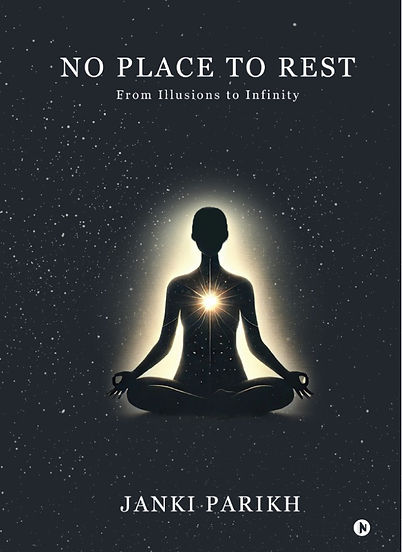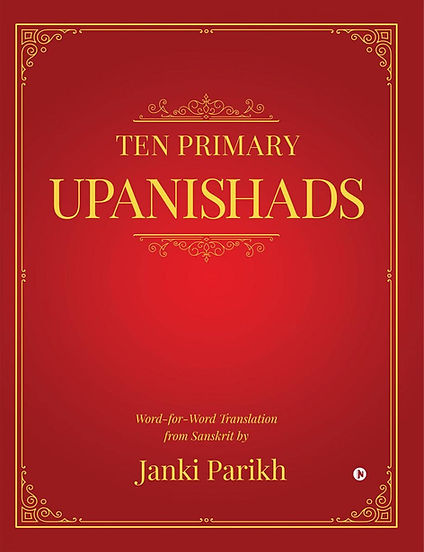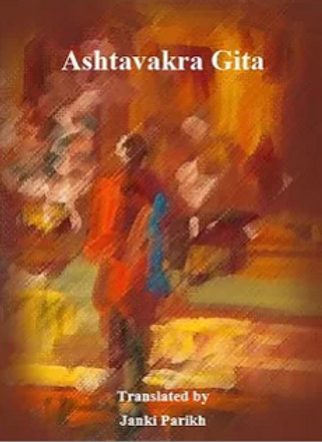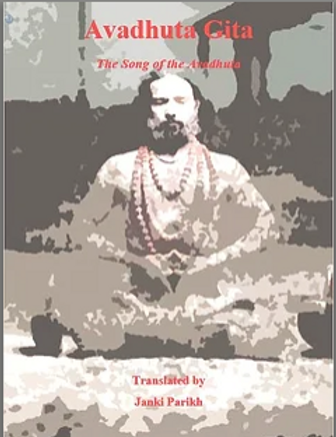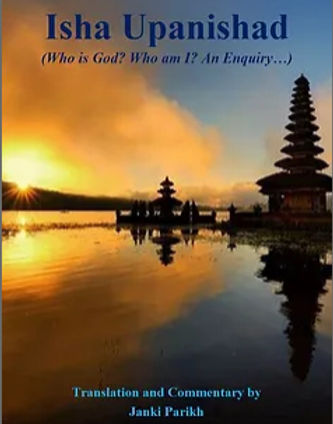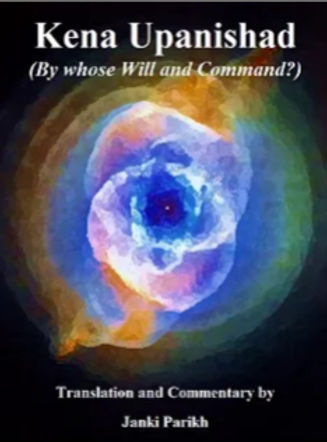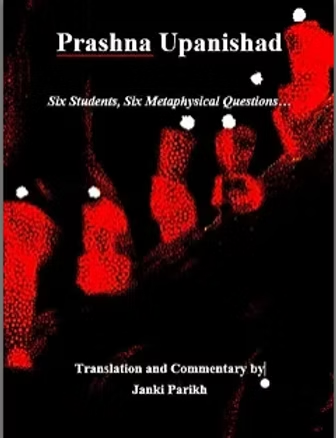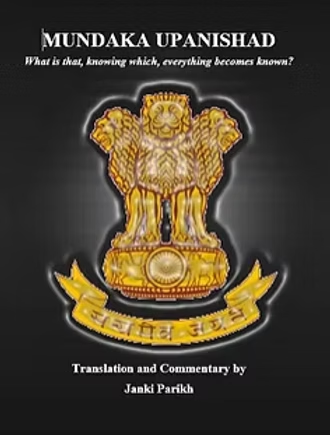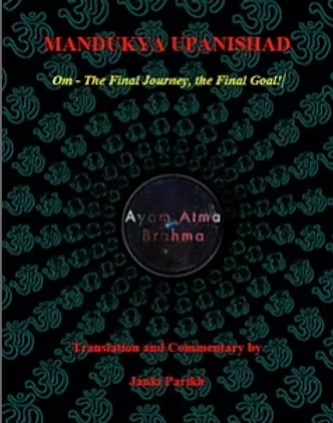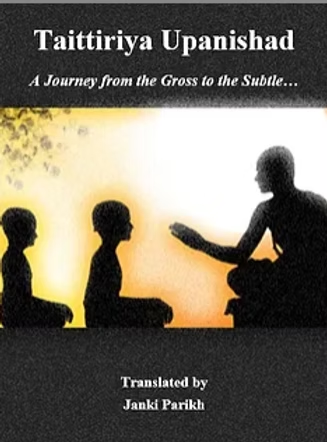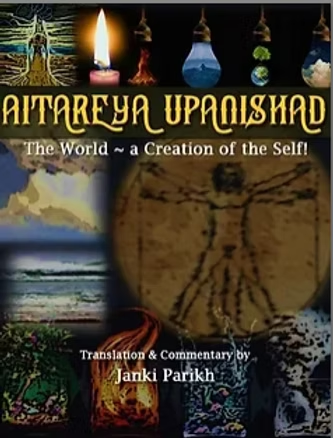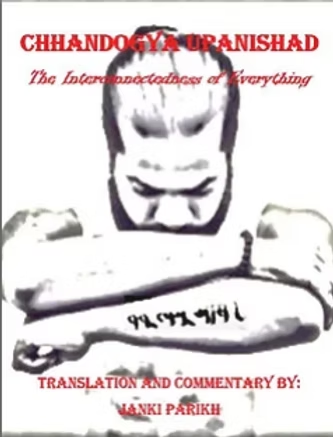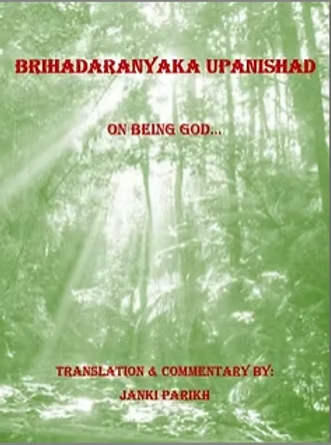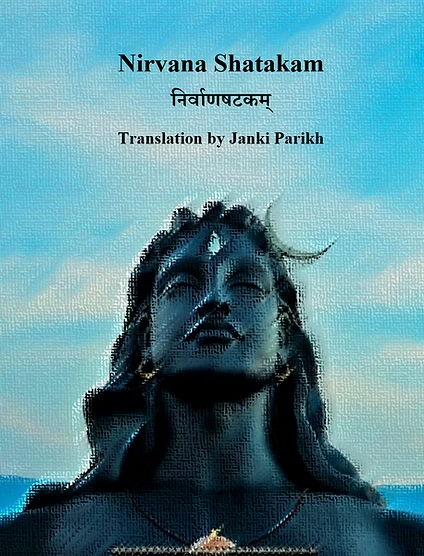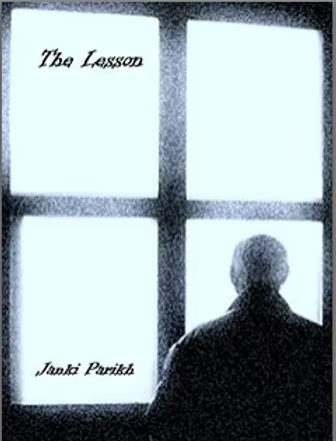No Place to Rest
No Place to Rest is an exploration of the void we all fear – the space where identity no longer serves and meaning falters. Mira observes, as Jyoti unravels – her wealth, glamour and power of no use in battling the anguish of the abyss.
She desperately searches, unaware that who she seeks is both here and now, yet forever beyond the reach of mind and heart. As the lines between the seeker and the sought blur, the boundaries of the heart merge into the infinite, and the meaning of rest takes on an entirely new dimension. To search is to scrounge endlessly for answers; to rest is to return to the stillness where all questions quietly dissolve.
Blending poignant fiction with the ancient wisdom of Advaita Vedanta, No Place to Rest transcends storytelling to become a profound spiritual guide for those seeking meaning, purpose and connection in a chaotic world.
Ten Primary Upanishads
Exquisite Collectible with original Sanskrit text, English transliteration (for those unable to read Sanskrit Devnagri script) and a high-quality exact translation that preserves the purity, integrity and beauty of the original text. Study it over and over, gift it, treasure it for a lifetime!
The Upanishads are the CORE of the Hindu philosophy that has fascinated spiritual seekers all over the world for centuries. They contain the deepest, most startling philosophical concepts known to mankind. They are a must-read for any spiritual seeker, regardless of their culture, nationality or religious beliefs… for anyone who has ever wondered in a philosophical/spiritual sense – Who am I?
Journey into the world of Upanishads…
ASHTAVAKRA GITA
What do you seek? Is it wealth, love, security, recognition, fulfillment, deeper meaning? Are you convinced that having more of all this is the goal of one’s life, that there is lasting happiness somewhere during or at the end of this quest?
What if you knew that you are none of the things mentioned above, that all the things you seek are mere reflections of that which is your ultimate goal…
…that YOU are that which you seek, YOU are the only one desperate quest of your life, and YOU are the only one final answer of your life?
Awaken to Advaita, the principle of non-duality… awaken to your true SELF! Allow Sage Ashtavakra to guide you on an astonishing journey of self-realization, just as he guides King Janaka in this short dialogue of 20 chapters known as the Ashtavakra Gita.
AVADHUTA GITA
The Avadhuta Gita is a majestically lofty masterpiece of an Advaitic Sanskrit song… as ancient as it is lyrically eloquent, as profound as it is elevating, as undeniably compelling as it is sublime!
This bold, audacious Gita is a blissful expression of Sage Dattatreya’s direct experience of Advaitic (non-dualistic) self-realization, i.e. recognition of the Self (Atman) as God (Brahman). The sage calls himself an Avadhuta – one who has seen the truth of the Self-as-Brahman, as a consequence of which, the world has fallen away from him. Imagine the state of the one who is alive in this world but free of all its bondage! He lives in bliss and laughs in bliss, with not even a scrap to call his own! He needs nothing from this world, because he is Brahman! He is ever-eternal, unchanging, ever-blissful, abundant, supreme Reality! He is Absolute Universal Consciousness… what can he need from this flimsy, insubstantial world?
ISHA UPANISHAD
Who is God? Who am I? An Enquiry…
Translation and Commentary by Janki Parikh
ISBN: 978-981-09-7786-3
The Isha Upanishad is one of the shortest Mukhya Upanishads. It is celebrated for its brevity and depth by many renowned seekers of truth. Mahatma Gandhi thought so highly of it that he remarked, “If all the Upanishads and all the other scriptures happened all of a sudden to be reduced to ashes, and if only the first verse in the Ishopanishad were left in the memory of the Hindus, Hinduism would live forever!”
Launch your journey into the fascinating world of Upanishads with the Isha Upanishad! Enjoy!
KENA UPANISHAD
By whose Will and Command?
Translation and Commentary by Janki Parikh
ISBN: 978-981-09-7787-0
The Kena Upanishad is especially known for its remarkable discussion of Brahman in two distinct ways – first as the Unmanifest Absolute with no attributes, and second imagined as Manifest with a form and with attributes! Because it covers the central idea of Brahman in such depth and breadth, Kena is celebrated for being a treatise on “purely conceptual knowledge”. This has made it a foundational scripture to Vedanta school of Hinduism.
Continue your journey through the wonderful world of Upanishads with the foundational Kena! Enjoy!
KATHA UPANISHAD
The Story of Death and the Boy.
Translation and Commentary by Janki Parikh
ISBN:978-981-09-7788-7
The Katha Upanishad is one the most widely studied Upanishads. Famous Irish poet W.B. Yeats dedicated several essays and sonnets to themes in Katha Upanishad. And the title of W. Somerset Maugham’s famous 1944 novel The Razor’s Edge was inspired by a verse in the Katha Upanishad, “Like the edge of a razor at night, difficult is the path, say the wise.”
Continue your journey through the wonderful world of Upanishads with the stories of Katha Upanishad! Enjoy!
PRASHNA UPANISHAD
Six Students, Six Metaphysical Questions…
Translation and Commentary by Janki Parikh
ISBN: 978-981-09-8664-3
The Prashna Upanishad addresses six metaphysical questions. From question 1 through 6, there is a clear, step-wise ascension from the basic or gross to the subtle. Each question is answered through a combination of mythological stories, symbolism, poetic analogies and instructions. Various ideas around one central theme intertwine and flow, right up to the climactic end where Sage Pippalada reveals the final truth: “Only thus far do I know Brahman – that there is nothing higher than Him!” Enlightening, indeed!
Continue your journey through the wonderful world of Upanishads with the educational Prashna Upanishad! Enjoy!
MUNDAKA UPANISHAD
What is that, knowing which, everything becomes known?
Translation and Commentary by Janki Parikh
ISBN: 978-981-09-8665-0
The Mundaka Upanishad is one of the most highly translated Upanishads. It is an illuminating exposition on the Absolute Brahman, and the path of Knowledge which is key to realizing Brahman, rather than archaic rites and rituals. The Mundaka Upanishad is the source of India’s national motto “Satyameva Jayate” which is at the base of India’s national emblem. It appears on Indian passports, currency, on all Indian states’ seals, and on various logos of Government institutions.
Continue your journey through the wonderful world of Upanishads with the Mundaka, and may truth be yours! Enjoy!
MANDUKYA UPANISHAD
Om – The Final Journey, The Final Goal…
Translation and Commentary by Janki Parikh
ISBN:978-981-09-8666-7
The Mandukya Upanishad is THE MOST widely read, studed and celebrated of all Upanishads. It is the shortest Upanishad, and within its 12 verses, it reveals the final truth of life, as well as the means to achieve it. In the Muktika Canon, Lord Rama, while teaching Vedanta to Hanuman, says “For attaining Kaivalya Moksha, the Mandukya is enough; if you do not get it, then study the 10 Upanishads…”
Continue your journey through the wonderful world of Upanishads with the self-sufficient Mandukya! Enjoy!
TAITTIRIYA UPANISHAD
A Journey from the Gross to the Subtle
Translated by
Janki Parikh
ISBN: 978-981-09-8668-1
UNIQUE YET FAMILIAR LESSONS FROM THE TAITTIRIYA UPANISHAD…
1. Golden SANSKARAS of the Hindu culture –
MATRU DEVO BHAVA (May your mother be a god unto you!)
PITRU DEVO BHAVA (May your father be a god unto you!)
ACHARYA DEVO BHAVA (May your teacher be a god unto you!)
ATITHI DEVO BHAVA (May your guest be a god unto you!)
These golden principles, deep “sanskaras” or social and cultural conditioning of Hindus, have always been cornerstones of the Hindu way of living.
These principles are laid down in the Taittiriya Upanishad, which is 7th amongst the 10 “Mukhya” or Primary Upanishads.
AITAREYA UPANISHAD
The Aitareya Upanishad is number 8 of the 10 Mukhya (Primary) Upanishads.
It explores the deeply intriguing philosophical theme of the creation of the world. In the beginning, the Upanishad says, there was just the One, Undivided, Absolute Self – known as Atman, or Brahman. In this state of undividedness, Atman contemplated duality, and there in a snap, the worlds were created!
After creating this entire Samsara – the sea of Creation – including the world, the elements, the guardians of those elements, and most importantly, Man – Atman contemplated upon itself: Who am I? Am I the one who sees, smells, tastes, feels, hears, breathes?
Atman answers itself: I am perception, mastery, wisdom, consciousness, prudence, insight, steadfastness, intelligence, contemplation, drive, remembrance, determination, purpose, spirit, the defeating of desires. All these are but various names of Prajna – Consciousness!
CHHANDOGYA UPANISHAD
The Chhandogya Upanishad is number 9 of the 10 Primary Upanishads.
It is the most quoted Upanishad in commentaries by Hindu scholars. Adi Shankaracharya, the primary proponent of Advaita Vedanta has quoted the Chhandogya Upanishad more than any other in his commentary.
Though the eight chapters of the Upanishad cover myriad topics and stories, the recurrent underlying theme is the interconnectedness of all things in the Universe – Natural elements, celestial objects, space, colours, plants, animals, birds, right down to insects, as well as the senses within the human body and different types of breath (pranas), bodily organs, human actions and behaviour. The final message of this theme is that all of these myriad things are not to be thought of as separate, but as many projections of the ONE Self – Atman.
“Sa atma tat tvam asi” (That Self – That You Are!) the Upanishad declares again and again in joyous, poetic, analogical verses that present the concept of Advaita various ways until it sinks into one’s soul! ‘Tat Tvam Asi’ is one of the four Mahavakyas – Great Sayings from the Upanishads.
BRIHADARANYAKA UPANISHAD
The Brihadaranyaka Upanishad is the last of the 10 Primary Upanishads!
Brihadaranyaka means ‘Great Forest.’ This Upanishad is indeed a great forest of knowledge – of metaphysical, ethical and philosophical discussions, and concepts explained in profound depth and detail.
“Aham Brahmasmi” declares this Upanishad boldly! I myself am Brahman – the Absolute! This Mahavakya – Great Saying is considered the climax of the Vedanta philosophy, for what could be greater than realizing that one’s own Self (Atman) and the God one seeks (Brahman) are not two separate concepts, but ONE! Realization of Advaita – Non-duality is the last stop in the journey of self-realization!
The brilliant Sage Yagnavalkya explains – through infallible and practical logic, scores of analogies and examples, and riveting debate with other brilliant Brahmin scholars – the nature of the Self (Atman) and the nature of the Absolute (Brahman). The quality of discourse is nothing short of brilliant!
NIRVANA SHATAKAM
The Nirvanashatakam is a composition of six shlokas (verses) of joyous, flowing poetry explaining the meaning of Advaita Vedanta, or the philosophy of non-duality contained in the Upanishads.
Advaita – the deepest, highest philosophy within Hinduism, is the cornerstone of the Upanishads. Imagine the essence of the entire philosophy of all the Vedas contained within six shlokas! That is the Nirvana Shatakam!
The verses were composed thousands of years ago by Adi Shankara, also revered as Shankaracharya, the original exponent and teacher of Advaita Vedanta. It is said Shankara was merely eight years old when these verses spontaneously flowed out from him in response to a passerby asking him, “Who are you?”
The answer is expressed through a famous recurring refrain, which is now freely quoted by many Advaitic speakers and teachers:
THE LESSON
This is the story of Bernie’s extraordinary journey… the deep spiritualization of an ordinary man’s life… a short but profound story, guaranteed to strike a chord in your soul, and present you with a life-changing lesson… enjoy!
